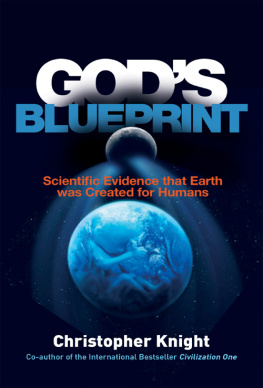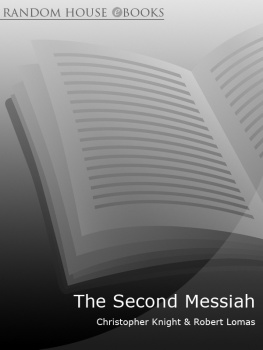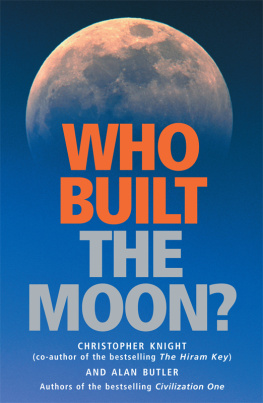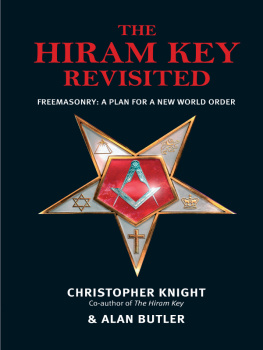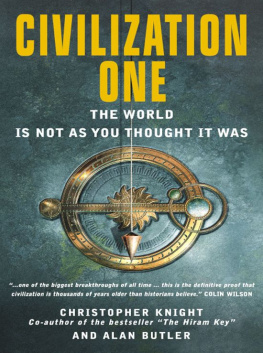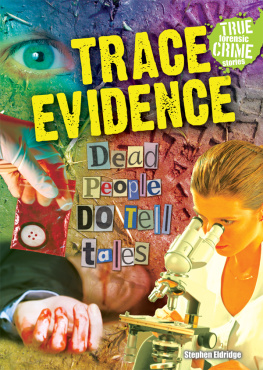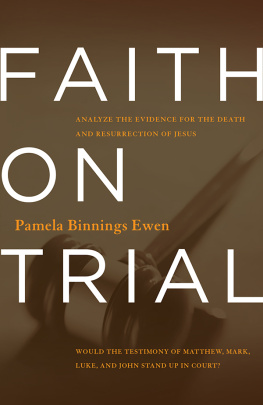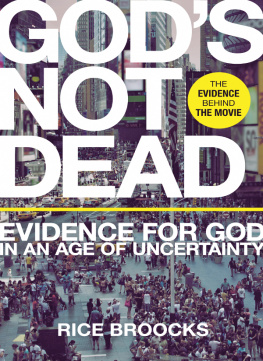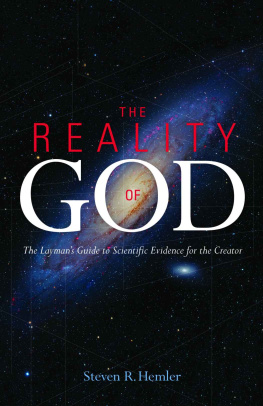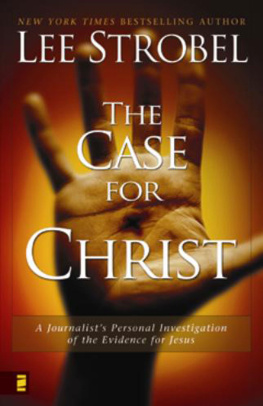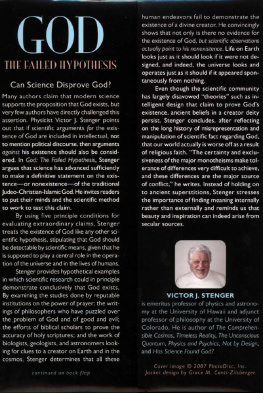Dedicated to my grandchildren:
Sam, Isabelle, Eli, Max, Toby, Betsy and Eleanor.
Every smile makes the world a better place.
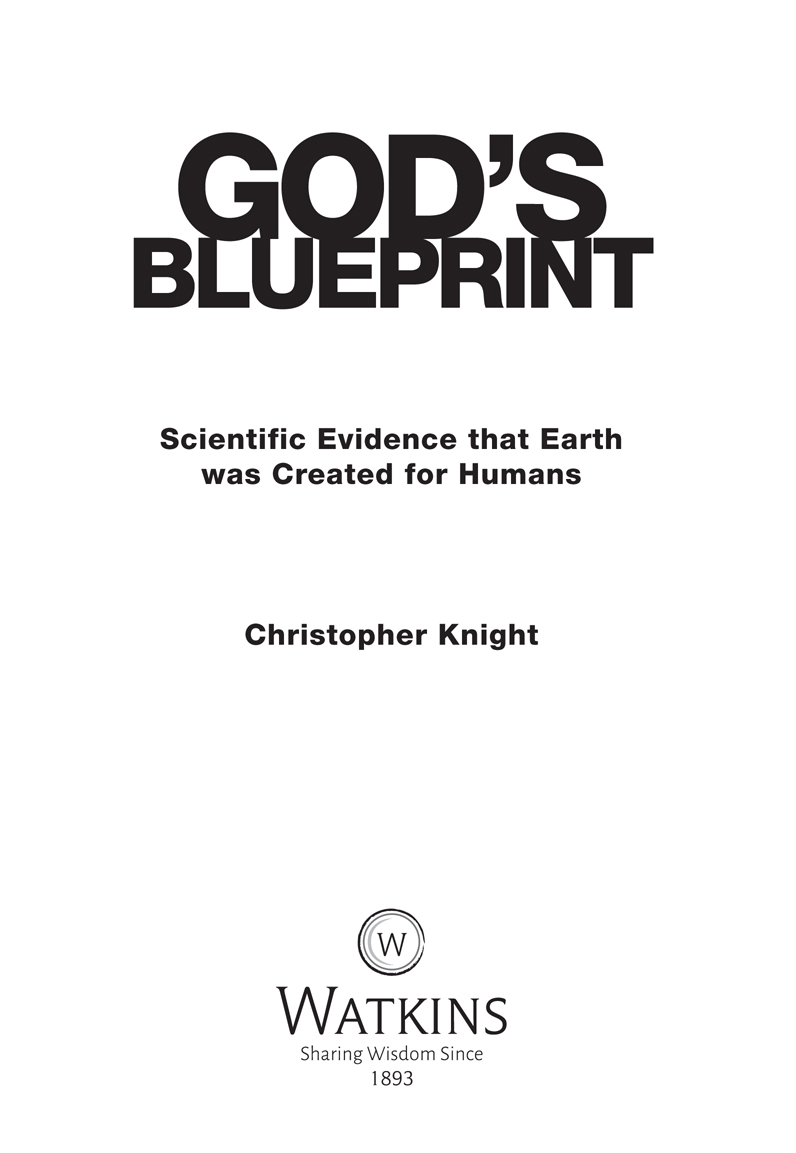
CONTENTS
INTRODUCTION
This is not a book I could ever have imagined writing. I have no religious beliefs whatsoever and no desire to debate aspects of faith with anyone.
However, I have come down a winding pathway of personal research since 1976 that began with a simple question that has no apparent connection with the ultimate findings described in this book. I began by looking into the origins of the rituals used by Freemasonry, which led me to attempt to reconstruct the origins of ancient Judaism, which in turn led me to investigate prehistoric astronomy.
Unlikely as it may seem, these rather anodyne subjects have opened a doorway on the past that has taken me deeper and deeper into the nature of our planet and the universe itself. Century by century rolled back, and I was eventually to find myself taken deep into prehistory. I had expected the rituals used by Freemasons to be a 16th- or 17th-century invention, but as my investigation delved further back in time the inescapable evidence emerged that Freemasonry is a memory-strand connected to a prehistoric science based upon astronomy and the measuring of the world to an accuracy that is way beyond modern comprehension.
Some casual readers, intrigued by the title, may have just switched off. A preconception that Freemasonry is esoteric nonsense or some kind of secretive lite will have overtaken any open-mindedness. This is understandable, but anyone who appreciates hard evidence and is relaxed about challenging his or her prejudices will be amazed at the story I have to tell.
This more recent period of my research was conducted with my good friend and colleague Alan Butler, who began his own research trying to understand a curious Minoan artefact known as the Phaistos Disc. This small double-sided clay disc from the island of Crete, dating from the second millennium BC , is covered with undecipherable hieroglyphs. Alan deduced that it was, possibly, and among other things, a stunningly accurate perpetual calendar. He wasnt sure why at the time, but he contacted me because he felt that his research was in some way connected to my own investigations.
We spent several years working together, and this led to the reconstruction of an ancient super-science of breathtaking accuracy and complexity. We published several books together, explaining our findings, which became progressively more and more mathematically testable. Whilst most of history and much of archaeology is about opinion and the interpretation of physical artefacts, Alan and I were faced with hard, verifiable forensic evidence from a time before writing existed anywhere in the world. Before the rise of the ancient Egyptian, the Sumerian, the Vedic or the Chinese civilizations, the world had possessed a comprehensive system of measurement that is the origin of all the units in use today.
We invited a number of archaeologists to check out our findings, but they are not generally trained to understand astronomy or mathematics. One high-profile archaeologist who is supposed to be astronomically competent was initially positive, responding that he had greatly enjoyed my previous book Uriels Machine, which opened up the subject. Then he suddenly refused to respond to correspondence, despite having said that we appeared to be onto something very important.
However, when we put the evidence in front of experts from other academic fields including astronomy, engineering, statistics, physics and chemistry we were told that our findings were robust, even if our techniques are a little home-cooked. One friend, with a medical degree and an MSc in mathematics, was very surprised when she ran through our findings. Dr Hilary Newbegin said that she was stunned by our findings concerning the SunEarthMoon relationship, which occurs with no other planets in our solar system.
But as things progressed to the next stage I became more and more troubled. Slowly, it became obvious that the beautiful, integrated system of measures from the extremely distant past was much more than a way of describing the planet upon which we live. It transpires that this super-science was not an abstract invention: it went way beyond the boundaries of the Earth and apparently reveals a complete plan and any plan has a predetermined, intended outcome. However much my agnostic brain sought for other conclusions, there was recurring pressure to consider that this was Gods blueprint for building everything everything that has led to advanced life on Earth!
And the plan appears to be on public display. We seem to be invited to participate.
It is the premise of this book that there is now an entirely new class of evidence to bring to the God debate. Faith and prophecy aside, there is a new, complementary, way of considering theology. Based on engineering principles and planetary metrology, I believe we are being given a glimpse of the great plan. I can only call it Gods Blueprint.
The bottom line is: if there is indeed a blueprint for an engineering project, there must be an intended outcome. And it seems highly probable that there is a message from the Maker contained within the very fabric of this plan. Could we humans be on the verge of a new relationship with the Great Architect of the Universe?
IMPORTANT DEFINITIONS USED IN THIS BOOK
This book is not about religion. It does not challenge anyones beliefs, nor does it support or question the scriptures of any faith. It is about science and evidence that intelligent atheists and open-minded people of faith should consider with equal enthusiasm.
The sole purpose of this small book is to present dramatic new evidence that changes the nature of the God debate. It appears that life on Earth was deliberately planned and is not the result of mindless cosmic happenstance.
Those who have religious faith, or those who believe only in the principles of science, will not find anything in these pages that will disturb them. But because of the emotive nature of the subject matter, it is essential to establish at the outset what is meant by certain terms used in these pages.
God
The consciousness that (may have) created the universe and all of its rules.
There are four kinds of argument for His or Her existence: cosmological, teleological (the design argument), ontological and Pascals wager. The cosmological and teleological arguments appeal to certain facts about the world. The cosmological argument holds that the very existence of the universe needs explanation and the only adequate explanation is that it was created by an original and deliberate cause. The teleological argument is also called the argument from design, and specifically singles out the intricacy of nature as key evidence for Gods existence. The ontological argument suggests that Gods existence can be proven purely from reflection on the concept of God itself. In the ontological argument no facts about the world are required. Pascals wager is an argument that it is in your best interest to believe in Gods existence on the basis that it costs nothing, but the consequences of not believing, and being wrong, are terrible.
Religion
One of a large number of organized belief systems that, through cultural narratives, symbols, traditions and sacred histories, provide a shared perception of a deity (or deities) and, usually, a framework of morality, ethics and laws. Religious frameworks tend to provide a meaning to life for adherents and frequently give an explanation for the existence of humankind and the visible universe.
Next page
